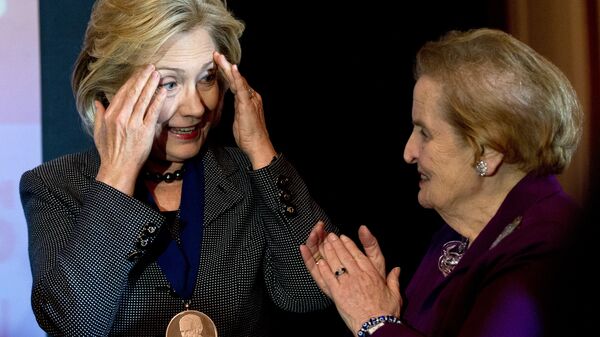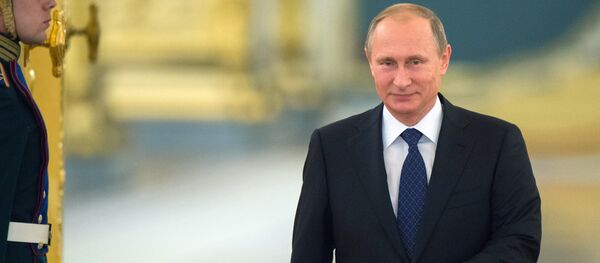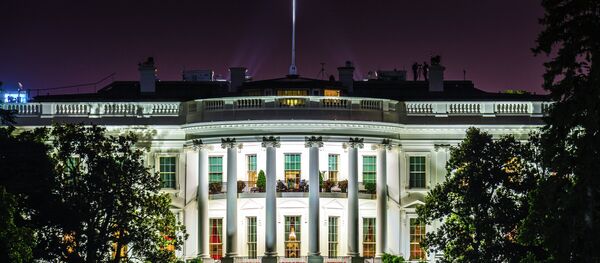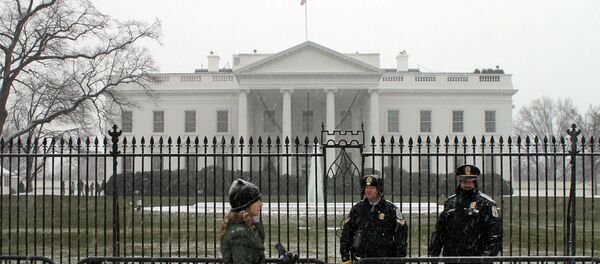That particular right to vote, he reminds, belongs to Russians “who live in the largest nation on the planet, spanning ten time zones and possessing an arsenal of nuclear weapons comparable in numbers to ours.”
“Russian national history begins four centuries before American natives had their first encounter with Columbus. Russians are as well educated and typically speak more languages than Americans,” he writes in his article for the investigative journalistic website Consortiumnews.
However, instead of making peace with Russia, the presidential hopeful Hillary Clinton still insists on forceful containment of Moscow.
John Ivens recalls of his encounter with Madeleine Albright in Iowa, where she came “to energize old folks”, motivating them to canvas and make phone calls for Hillary.
“I asked Secretary Albright how she would advise Hillary Clinton when negotiating with Russian President Vladimir Putin. She replied that we should keep talking to Putin, but we should be wary that he expands Russian influence at every opportunity. Secretary Albright said we should “draw the line” when “little green men” invade other countries (a reference to events in Crimea in 2014, I presume),” he recalls.
Clinton herself was critical of President Putin more than once: in March 2014, “during the early phase of the crisis in Ukraine (after a US-backed putsch had overthrown elected President Viktor Yanukovych and as ethnic Russians in Ukraine’s south and east were under attack from the new regime and seeking protection from Russia), Hillary was quoted in regards to Putin’s response:
Another example is an entire chapter of her 2014 memoir, Hard Choices, which she devoted to the Russian president, titled “Russia, Reset and Regression”.
“She narrates her awkward experiences negotiating with Putin, and she seems frustrated about her working relationship with Putin as a negotiating partner. But oddly enough, she makes no such comparisons of Putin to Hitler anywhere in this chapter. Instead, she recommends a “pause” button instead of a “reset” button, adding:
“But we should hit the pause button on new efforts. Don’t appear too eager to work together. Don’t flatter Putin with high level attention. … And make it clear that Russian intransigence wouldn’t stop us from pursuing our interests and policies regarding Europe, Central Asia, Syria and other hotspots. Strength and resolve were the only language that Putin would understand.”
“Former Secretary of State Henry Kissinger, despite his notoriety, is an accomplished negotiator. He has recently advised that such demonization reveals a failure in foreign policy,” he says.
“What Americans can do, is to vote for a president who can make peace with Russian leaders. More questions about peacemaking and diplomacy need to be asked and answered in the 2016 election cycle,” he finally states.






